Exploring Key Differences: Domestic and International HRM Practices
VerifiedAdded on 2023/06/14
|6
|348
|311
Essay
AI Summary
This essay provides a detailed comparison between domestic and international Human Resource Management (HRM), highlighting the key factors that differentiate the two. Domestic HRM is defined as HRM practices within a country's borders, while international HRM involves managing human resource activities at a global level. The essay identifies differences in activities, such as managing expatriates in international HRM, and the influence of external factors, which are more complex in the international context. Best practices for both domestic and international HRM, such as providing employee security and training, are discussed, along with the application of Systems Management Theory, which emphasizes interdependence and synergy within businesses. The essay references academic sources to support its analysis of the complexities and nuances of HRM in both domestic and international settings.
1 out of 6
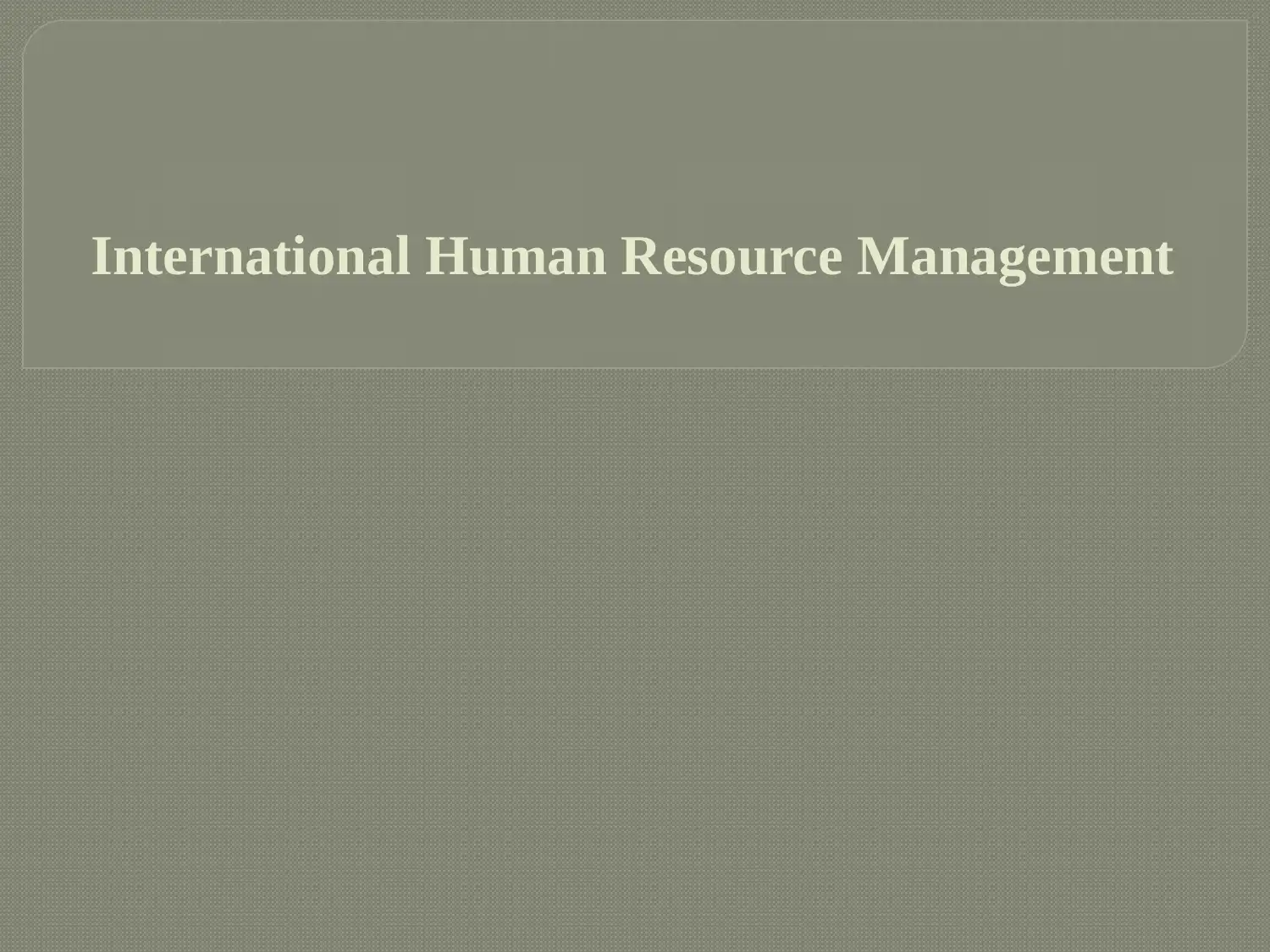
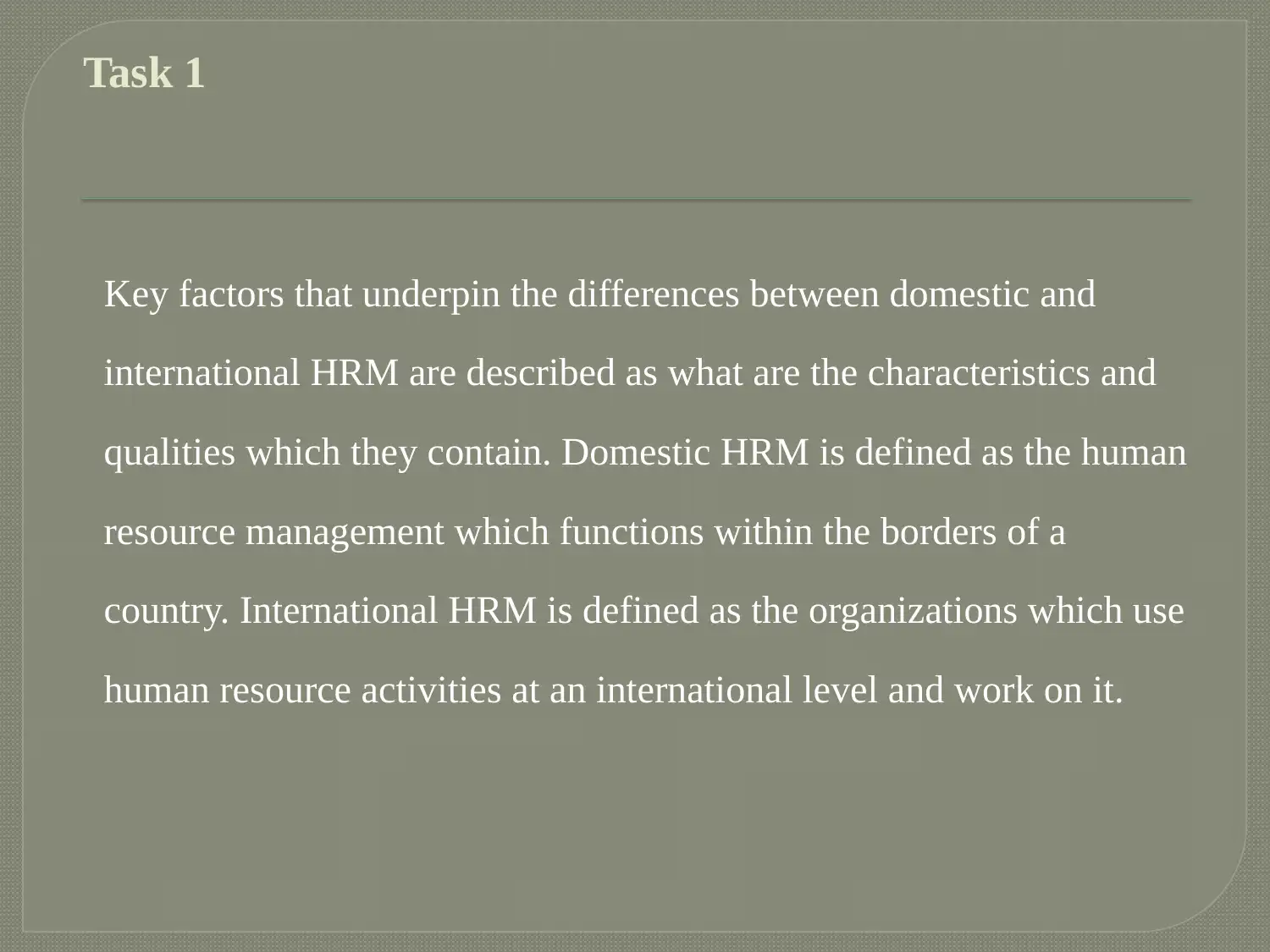
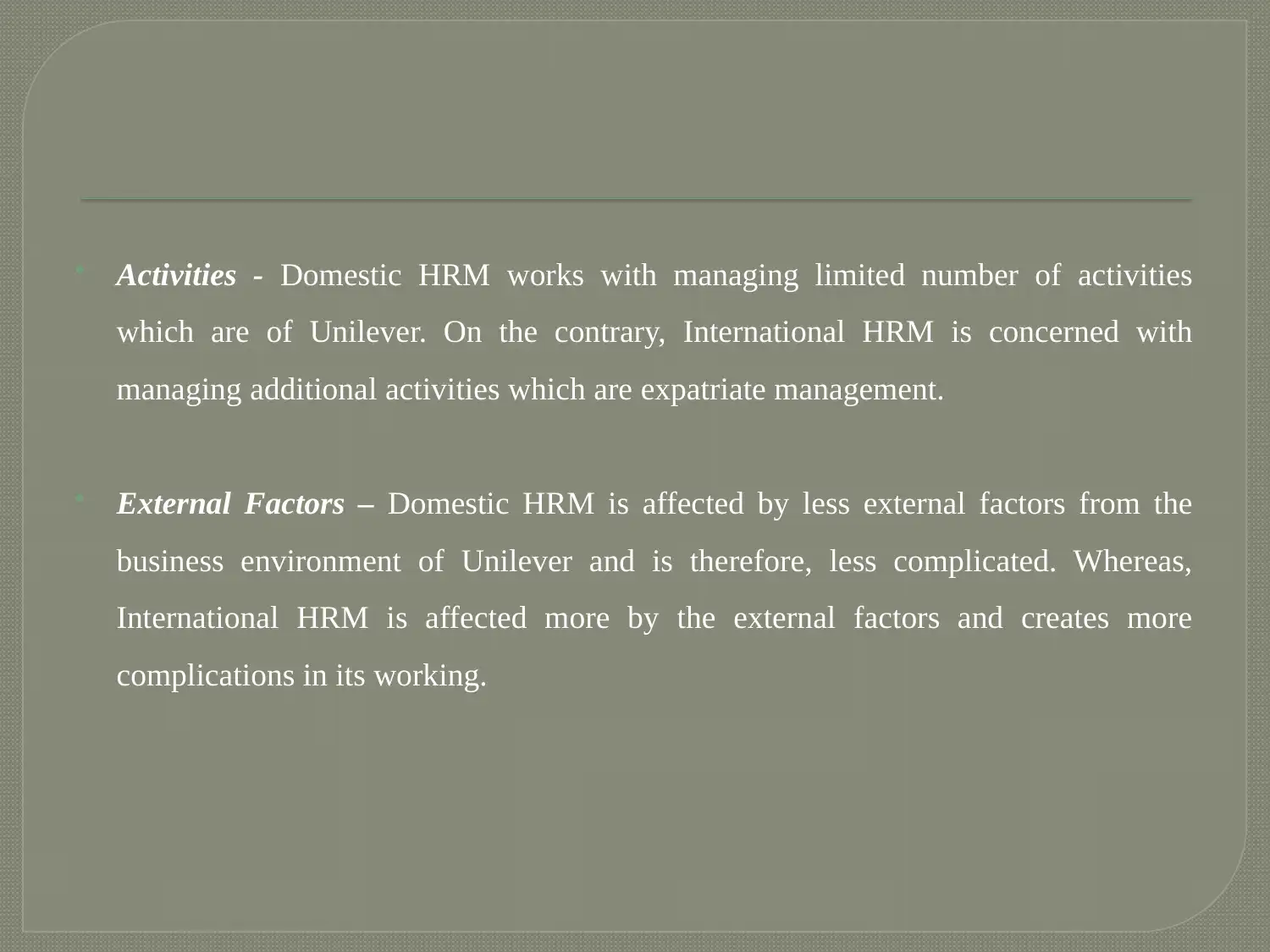

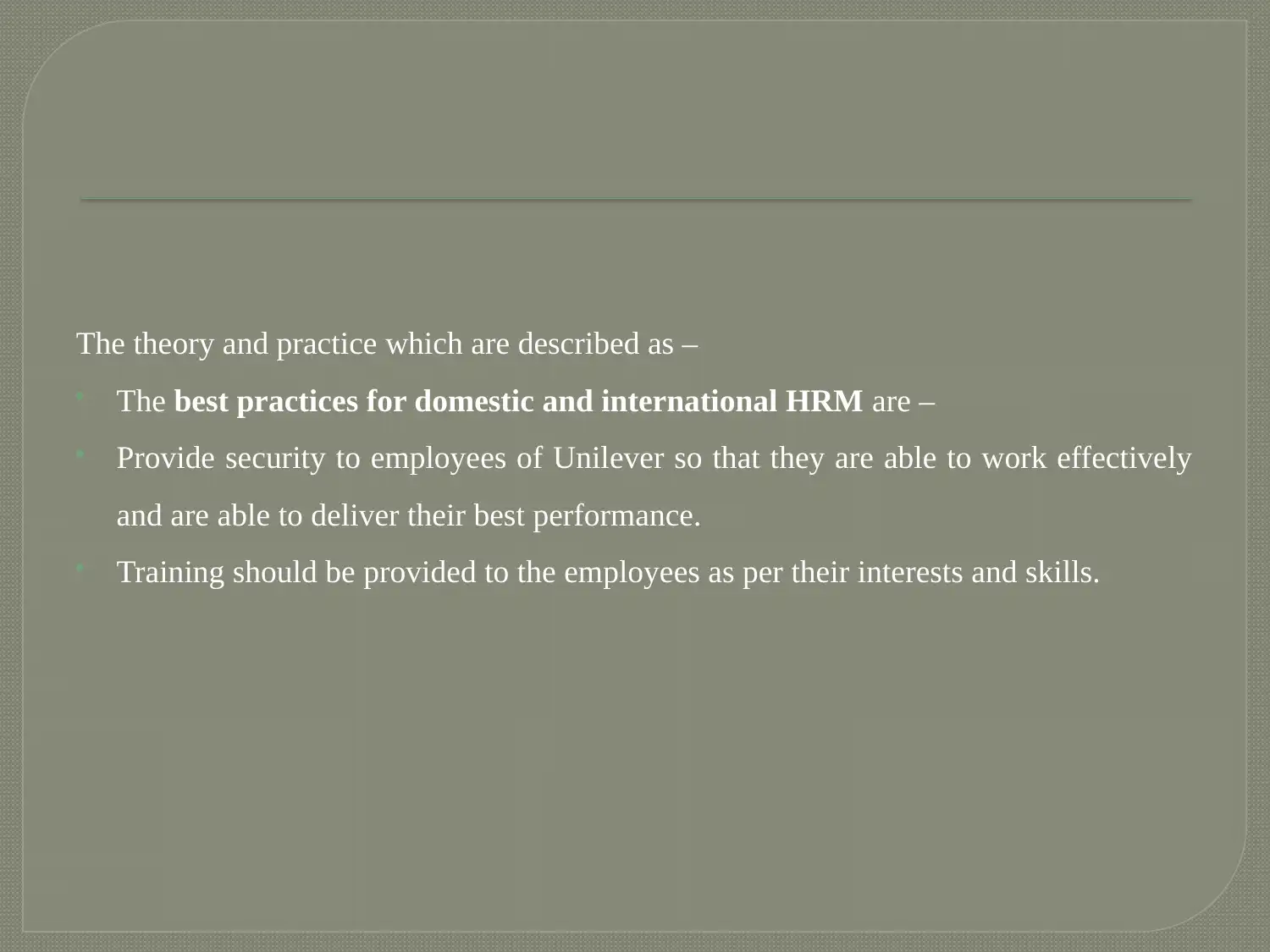
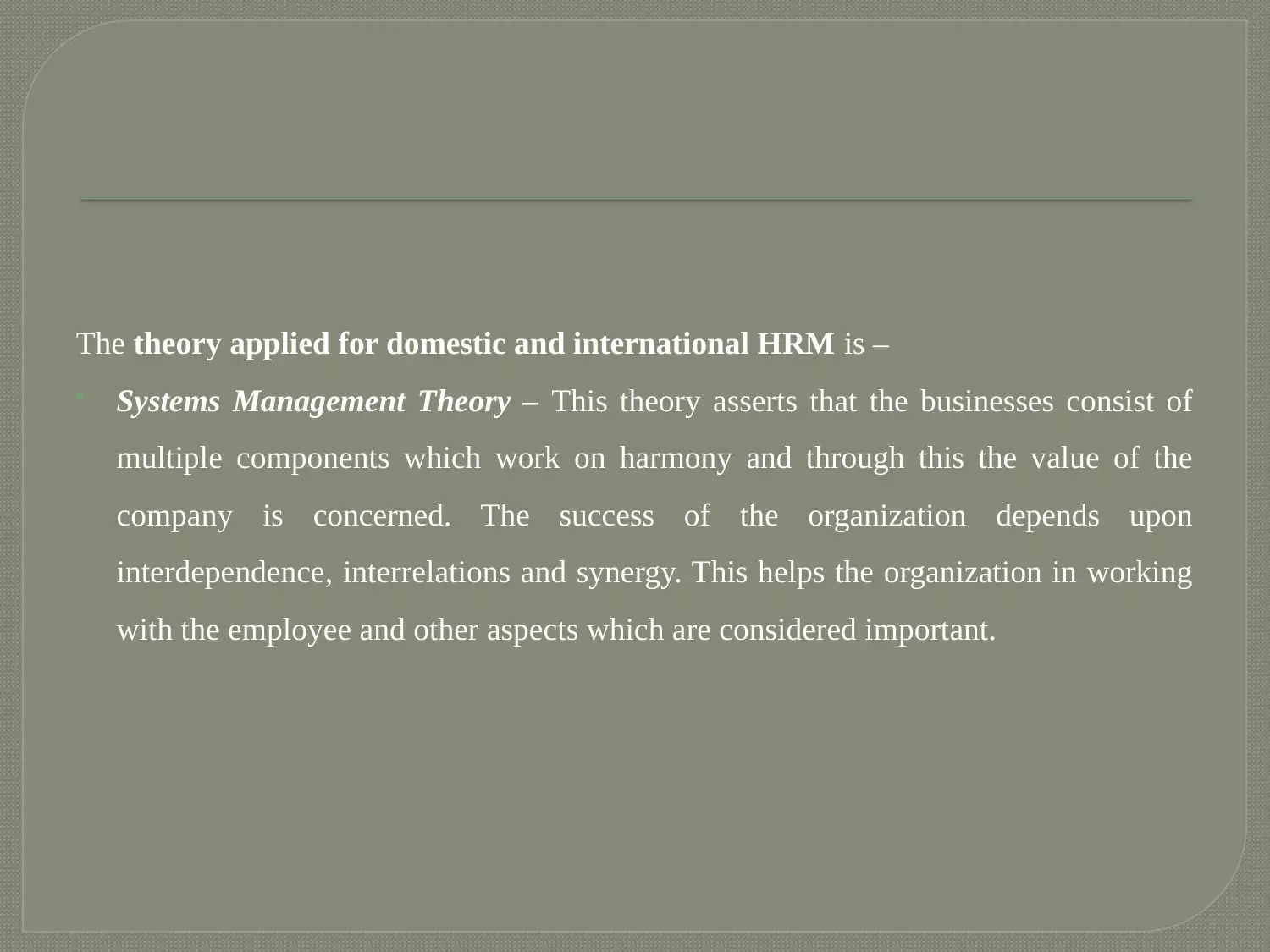
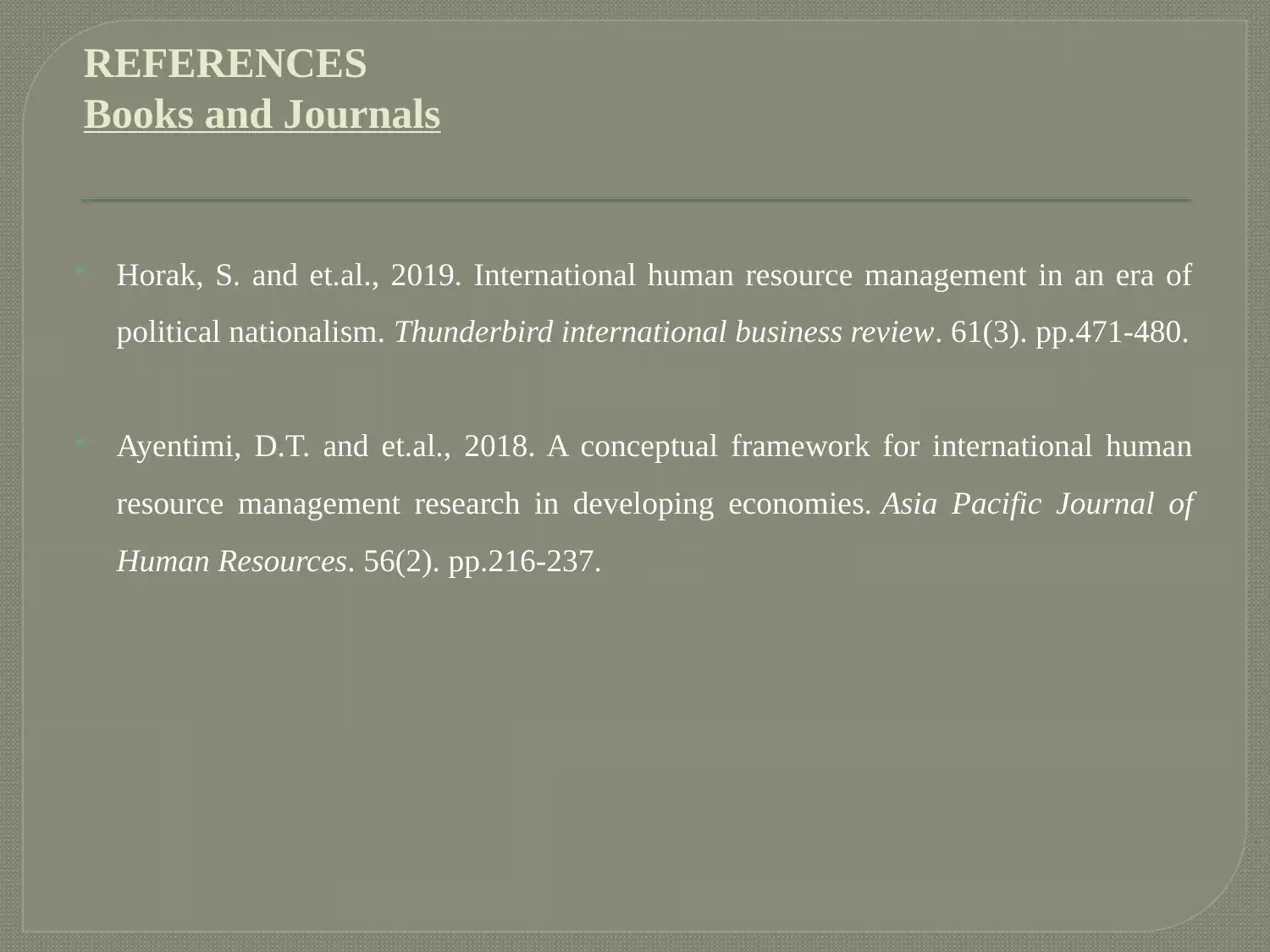






![[object Object]](/_next/static/media/star-bottom.7253800d.svg)